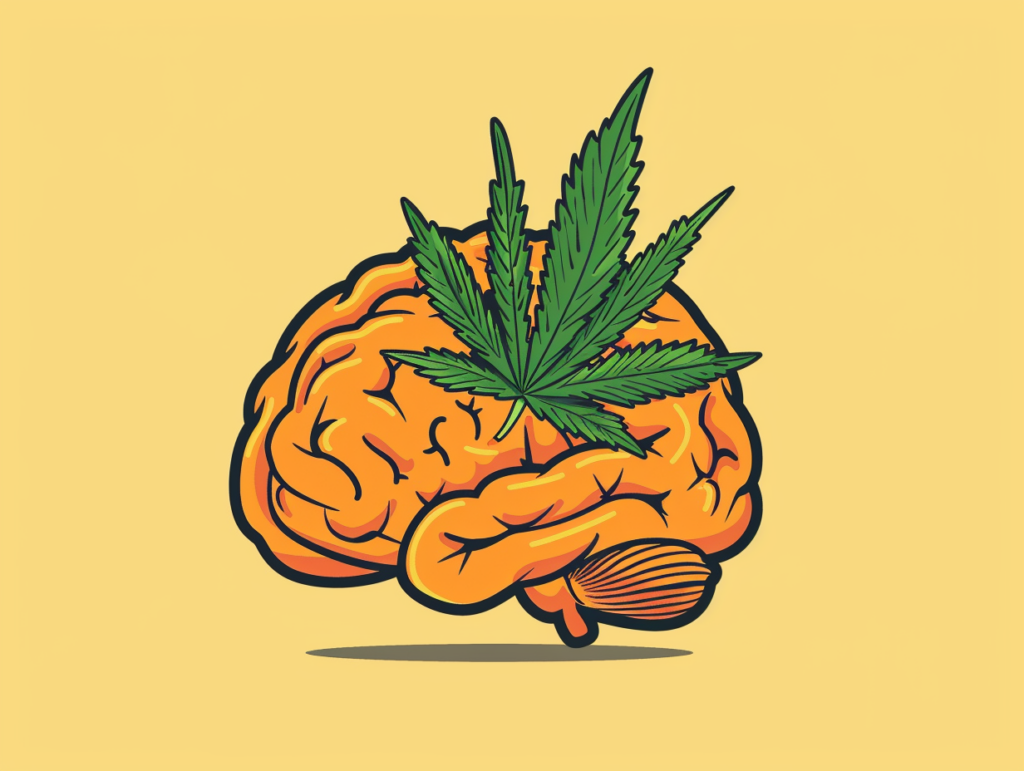The increasing legalization of cannabis around the world has sparked widespread interest and debate about its long-term health effects. While some users tout its therapeutic benefits, others warn of potential risks associated with prolonged use. To address these concerns, this comprehensive article delves into the most common questions people have about the long-term use of cannabis. We will explore the potential risks, and side effects, and how they might impact various aspects of an individual’s life and health.

What are the most common psychological side effects of long-term cannabis use?
Long-term cannabis use has been associated with several psychological effects that can impact daily life. Chronic users may experience changes in brain function that can lead to a variety of symptoms, including but not limited to anxiety, mood swings, and altered cognitive abilities.
Cognitive Impairments
Prolonged exposure to cannabis can affect cognitive functions such as memory, attention, and decision-making. Studies have shown that regular cannabis users may have difficulties with short-term memory and processing complex information.
Mood Variability
Regular cannabis use has been linked to increased rates of mood disorders such as depression and anxiety. The relationship between cannabis and these conditions is complex and may be influenced by genetic predispositions and the presence of other risk factors.
Dependency and Addiction
While not as addictive as substances like tobacco or opioids, cannabis can lead to dependency. The risk increases with the frequency of use and the potency of the cannabis consumed.
Altered Brain Development
For adolescents who use cannabis, there is a risk of altered brain development. The brain continues to develop until the mid-20s, and cannabis use during this critical period can have long-lasting effects on cognitive abilities and emotional health.
Psychological Withdrawal
Long-term cannabis users may experience withdrawal symptoms when they stop using the drug. These can include irritability, sleep difficulties, decreased appetite, restlessness, and cravings.
How does long-term cannabis use affect physical health?
The impact of long-term cannabis use on physical health can be significant, with potential effects on various bodily systems. This section outlines the primary concerns and what current research suggests about these risks.
Respiratory Issues
Smoking cannabis can harm lung health, leading to conditions such as chronic bronchitis and, in some cases, an increased risk of respiratory infections.
Cardiovascular Health
Cannabis use has been linked to increased heart rate and fluctuating blood pressures, which may pose risks to cardiovascular health, especially in individuals with pre-existing conditions.
Impact on Immune System
Research on how cannabis affects the immune system is still inconclusive, but some studies suggest it might suppress immune function, making the body more susceptible to certain diseases.
Effects on Reproductive Health
Cannabis use may affect reproductive health in both males and females, potentially impacting hormone levels and fertility.
Potential for Cancer
The risk of cancer from cannabis smoke is not as well-defined as tobacco smoke; however, cannabis smoke contains many of the same carcinogens as tobacco smoke, suggesting there could be similar risks.
What are the social consequences of long-term cannabis use?
Exploring the social consequences of long-term cannabis use reveals a complex interplay between personal behavior, community interactions, and societal norms. Individuals who consume cannabis over a prolonged period may face various challenges.
Stigmatization and Perception
Cannabis users can be subjected to stigmatization, impacting personal and professional relationships. This perception can lead to social isolation or discrimination in the workplace.
Impact on Professional Life
Chronic cannabis use might affect cognitive functions and motivation, potentially hindering career progression or job performance.
Legal Implications
Despite increasing legalization, there are still legal implications associated with cannabis use, especially in areas where it remains illegal or in professions that require regular drug testing.
Economic Consequences
The cost of regular cannabis purchase and potential legal fees associated with its use can lead to financial strain.
Effect on Relationships
Cannabis use can strain relationships, especially if use becomes problematic or leads to dependency.
Does long-term cannabis use lead to mental health disorders?
The relationship between long-term cannabis use and mental health disorders is an area of intense research and debate. While it is clear that cannabis can affect mental health, the extent and nature of these effects can vary widely among individuals.
Association with Psychiatric Disorders
Cannabis use has been linked with an increased incidence of disorders such as schizophrenia, especially in those with a genetic predisposition to such conditions.
Anxiety and Depression
While some users report temporary relief from symptoms of anxiety and depression, long-term use may actually exacerbate these conditions in some individuals.
Potential for Psychosis
High-potency cannabis use has been particularly associated with an increased risk of psychosis among users, especially those who start using at a young age or use cannabis frequently.
Impact on Therapy
Cannabis use can also complicate the treatment of existing mental health conditions, potentially interfering with the efficacy of prescribed medications.
Neurological Considerations
The impact of cannabis on the brain’s neurochemistry can contribute to mental health issues over time, particularly affecting neurotransmitter systems involved in mood regulation.
What is the impact of long-term cannabis use on memory?
Chronic cannabis use has been closely associated with various memory-related issues. This section discusses the types of memory affected, the potential permanence of these effects, and strategies for managing them.

Short-Term Memory Loss
One of the most common complaints among long-term cannabis users is the loss of short-term memory. This can affect daily functioning and quality of life.
Long-Term Memory Impact
While the effects on long-term memory are less clear, some users may experience difficulties recalling events from the past or forming new long-lasting memories.
Working Memory
Cannabis use has also been shown to affect working memory, which is crucial for reasoning and decision-making processes.
Mechanisms Behind Memory Impairment
THC, the psychoactive component of cannabis, affects areas of the brain that are crucial for memory formation, including the hippocampus and prefrontal cortex.
Coping Strategies
There are strategies that can help mitigate memory problems for those who choose to use cannabis, such as reducing usage, using strains with lower THC content, and engaging in brain-stimulating activities.
Conclusion
This detailed exploration into the long-term effects of cannabis use illustrates that while there are potential benefits, there are also significant risks and consequences that should not be overlooked. As cannabis becomes more integrated into societies worldwide, it is crucial for users and policymakers alike to base their decisions on the most current and comprehensive information available. By understanding the complex dynamics of cannabis effects, individuals can make more informed choices about their health and well-being.
Learn more about Cannabis and Mental Health
FAQ
How does long-term cannabis use affect mental acuity and alertness?
Long-term cannabis use can impair several aspects of cognitive function, including concentration, memory, and the ability to perform complex tasks.
Are the effects of cannabis on the brain permanent?
While some changes may be reversible with sustained abstinence, others, especially those related to heavy or early use, may be more enduring.
Can cannabis use lead to other substance abuse?
Research suggests that cannabis can act as a “gateway” drug, potentially leading to the use of more harmful substances, though this is highly dependent on individual factors.
What are the risks of using cannabis during pregnancy?
Cannabis use during pregnancy is associated with risks such as low birth weight and developmental delays in offspring.
Is it safe to use cannabis with other medications?
Cannabis can interact with various medications, potentially altering their effectiveness or leading to adverse effects. Consulting with a healthcare provider is recommended.
How can one reduce the risks associated with long-term cannabis use?
Moderation, choosing lower-potency strains, and ensuring a balanced lifestyle can help mitigate some of the risks associated with long-term use.
What should one do if they are experiencing negative effects from cannabis use?
Seeking professional advice from a healthcare provider or a substance abuse counselor can provide guidance and support for managing adverse effects.




